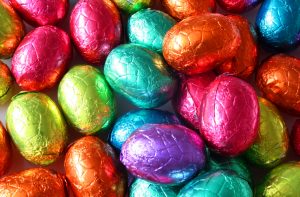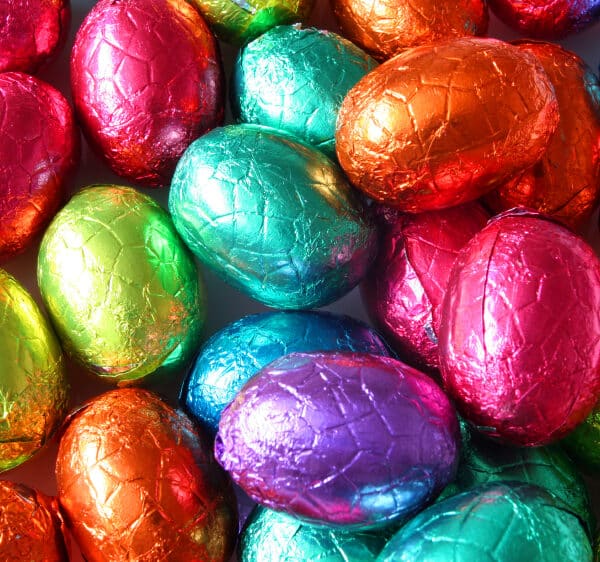 Over 80 million chocolate eggs are sold at Easter time – that’s a lot of chocolate!
Over 80 million chocolate eggs are sold at Easter time – that’s a lot of chocolate!
Chocolate is frequently associated with increased weight gain, but surprisingly there are also some scientific studies that show that a small amount of chocolate can be good for you.
Chocolate and Heart Health
Chocolate is derived from cocoa (cocoa liquor, cocoa powder and cocoa butter) and combined with sugar and milk and other ingredients to produce different varieties. The proportion of cocoa solids determines how dark the chocolate is. And importantly it is the cocoa that contains a significant amount of compounds called polyphenols or flavonols, which may be responsible for the beneficial effects reported for cocoa and dark chocolate.
A systematic review that looked at studies of chocolate or cocoa on heart health suggested that the reported benefits could be due to the effect on maintaining endothelial function. The endothelium is the inner lining of blood vessels in the heart. Cocoa flavonols may help the expansion of these blood vessels allowing normal blood flow. This is good news for the heart as If normal blood flow is altered it can ultimately increase the risk of heart disease.
In order to obtain this effect, 200 mg of cocoa flavanols, provided by 2.5 g of high-flavanol cocoa powder or 10 g of high-flavanol dark chocolate (about 1-2 squares), should be consumed daily. But the evidence for the effect of chocolate on other important cardiovascular risk factors (like blood pressure, blood cholesterol and triglyceride concentrations and inflammatory markers) is less clear.
Not too much and make it dark
Before we get too excited it should be remembered that some of the research used fairly high doses of chocolate– quantities that may contribute greatly to dietary energy intake, and potentially increase weight over time which would almost certainly negate any small benefit provided. Furthermore if the effects are related to the cocoa flavanols, then the benefit will be with dark chocolate consumption (which will contain a higher level of cocoa flavanols) rather than the milk and white chocolate that is more frequently consumed in Easter Eggs. There have been some studies showing benefits with smaller amounts of dark chocolate, but consumers may find it difficult to restrict their intake to one or two squares.
But a small amount of dark chocolate, as part of a balanced diet, may perhaps be beneficial for us after all. Happy Easter!






